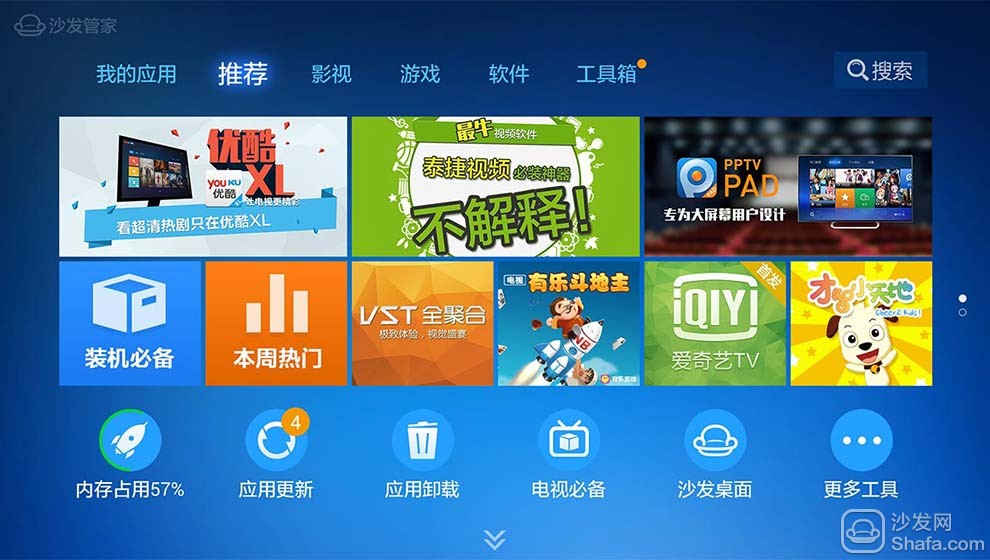Bus Led Display,Bus Led Display Board,Bus Led Screen,Led Bus Display ShenZhen Megagem Tech Co.,Ltd , https://www.megleddisplay.com
The future of Internet TV is still a payment model, but when the payment habits are formed and can be formed on a large scale, how the user payment growth curve changes is still unknown. 
Internet TV had a thrilling 2014 in one round of regulation. The licensee was interviewed and rectified. The video website was ordered to abandon the TV APP. The appliance manufacturers were required to strictly inspect the built-in content. All the players in the industry chain repositioned their positions almost under the baton of the regulator. 
In 2015, as more and more talents such as Xiaomi, Peng, and Mango TV entered the board, the competition in the Internet TV and video industry became fiercer. However, after ten years of development in the video industry and the rise of the Internet TV industry in recent years, there is still no real profit for players.
When Wang Kai, founder and CEO of Yikai Capital, recently accepted an interview with the Caixin reporter, the video industry has come to the present day and purely relying on advertising cannot achieve real profitability. Payment is a possible future development path. From a payment perspective, compared to PCs and mobiles, Internet TV is more likely to implement payment models.
Wang Hao also appealed that regulators should give Internet TV certain policy space. Over-regulation may lead to damage to content and user experience. What does Internet TV allow users to pay?
Wang Hao, Founder and Chief Executive Officer of Easy Capital, once worked for Goldman Sachs and JP Morgan Chase in the United States and returned to China in 2000 to establish Yikai Capital. In the past two years, Yikai Capital has participated in the completion of nearly 50 financing and M&A transactions, involving a total amount of over US$4 billion, mainly in TMT and consumption (especially O2O, Internet finance, media and entertainment segments) and health Industrial field.
Reporter: What is the status of the Internet video industry?
Wang Wei : From the beginning of Wang Wei's earliest work on the video site Potato, the video industry has developed for nearly a decade. Before and after the capital, at least throwing billions of dollars into it, the industry is still not profitable. You can't imagine that any industry will be like this.
In fact, what was expected 10 years ago has happened today, such as the shift of traditional media advertising to the Internet. Statistics show that in 2014, the Internet industry’s advertising reached 154 billion yuan, which exceeded the sum of television and newspaper advertising revenue. However, even with the rise of Internet advertising, leading video companies still have no profit. LeTV profits because it uses A-share accounting principles and implements straight-line amortization. If it follows the US GAAP, it is also difficult to make profits.
This industry condition stems from China's unique Internet ecology. The top video sites are backed by BAT (Baidu, Alibaba, Tencent), and they can't afford to be profitable or not. For BAT, video users are very sticky and video services have unique value. Therefore, BAT is not willing to give up easily. Objectively, it is relatively difficult to integrate video websites.
BAT is not willing to integrate its video sites, and the video industry will have no bargaining power to the upstream content industry. Although the cost of bandwidth can be reduced due to economies of scale, the cost of content will be higher and higher, forcing video companies to make their own content. However, each video site has to do content, with hundreds of millions of dollars going down each year, which may bring more benefits to users, but it will not make any changes to the industry landscape.
Reporter: So, what is the future profit model of video companies?
Wang Hao: The profit model that video can be expected to pay is purely advertising. It is completely impossible to achieve profitability. As far as the payment habits are formed, can be formed on a large scale, and how the user payment growth curve changes, it is still unknown.
Reporter: Which of the three PC, mobile, and TV screens is the most valuable?
Wang Hao: The PC is dead, leaving only the mobile and TV screens. For now, it is impossible to realize the payment on the PC; there is a possibility of mobile payment for users, but the scale of payment is still very small; the possibility of charging from the TV is even greater. In fact, the value of the mobile terminal and the TV is integrated in the future. It is difficult to separate their values ​​because the same content is used to support the ecosystem. The account numbers of the two are also open and the data on both sides are also shared. Looking at the next segment of the phone on the phone, you can't say that TV screens are more valuable because more income comes from the living room.
You can use TV this big screen to pull users to pay for content. In addition to content payment, TV-based games are also a gold mine to be mined, and now many game developers are moving towards TV screens. In addition, smart hardware and socialized e-commerce around television screens are likely to create new value. In short, smart TV's profit model should not be limited to content.
Reporter: In the battlefield of Internet TV, the broadcasting and television systems and the Internet system are all ambitious. Who's the better?
Wang Wei: In fact, it is hard to say which kind of company can win. Like the traditional television, Internet TV is the most important one is broadcast, one is content, although the solution is not the same, but the core media properties are the same. In this sense, Internet TV is the final competition of two things: First, who's content is strong, and second, who's experience is good.
Specifically, now that Internet companies are seriously affected by the policy, it directly affects its user experience. The Internet generally relies on the user experience to win, without user experience, how to make users willing to pay? The current licensing system is definitely to undermine the user experience. Internet companies are tied to their hands and feet, and they can only wear squeaks and dances. Users also feel like they are wearing socks. As for broadcasting and TV companies, there is only one Hunan TV station that really has strong content and is the foundation of Internet TV. System problems will be the biggest challenge for the development of broadcast and television companies.
Reporter: In the field of Internet TV, if you can only choose a company to invest in from the Department of Broadcasting and Television and the Internet, what would you choose?
Wang Hao: If I had to put my money in a basket, I would rather be on the side of the marketization company.
Reporter: The TV screen is still the most likely to pay. Now is the capital's enthusiasm for investing in Internet TV? What are the trend changes in the relevant investment circle?
Wang Hao: Originally TV screens had the opportunity to form a payment model, but now the license plate party has become a middle layer that undermines the user experience. In this situation, Internet TV cannot give users a good user experience, and it is difficult to form a payment motive force. Regulators should give Internet TV a certain amount of policy space. Over-regulation may result in damage to content and user experience. What does Internet TV allow users to pay?
At present, there is no more choice for the capital. If there are still people who can make a "rice" or "look at it" today, there will still be people willing to invest. Because the basis of China's consumer groups is there, and the market scale is there, whether it is a cultural market, a sports market, or a media industry, it has a certain basic scale. Now it seems that the only companies that are most likely to implement hardware and software integration ecosystems are Xiaomi and Leshi. Other home appliance companies or video companies are still far away from them.
Today if there is anyone who casts video in this industry, it should not be a financial investor but a strategic investor. Strategic investors are interested in video companies for their own strategic purposes.
The changes in the investment circle after the Spring Festival are particularly noticeable. Financial investors have basically taken a break. Many of them are simply not watching. Instead, strategic investors are too busy to become the main players. Apart from BAT, second-tier Internet companies including the 58th, the US Mission, and JD.com are all active now. Many transactions are led by second-tier Internet companies. As for the BAT camp, the biggest change is Baidu. Baidu has become significantly more active in this year’s battle. Another category is state-owned financial institutions, such as Ping An and Haitong.
Reporter: The Internet-related concept stocks are soaring. Will the Internet market bubble burst?
Wang Hao: The Internet market has definitely adjusted in these two years. In the long run, the spread of the A-share market price ratio will shrink, and there will certainly be a downward process. However, this downward process will continue for a long period of time. There is room for premium during this period of time.
Recommended installation sofa butler, download address: http://app.shafa.com/
Hot Apps Recommended: HDP VST All-in-one Fast-viewing film Dragons Live Karaoke King TV Thumb Playing ZAKER